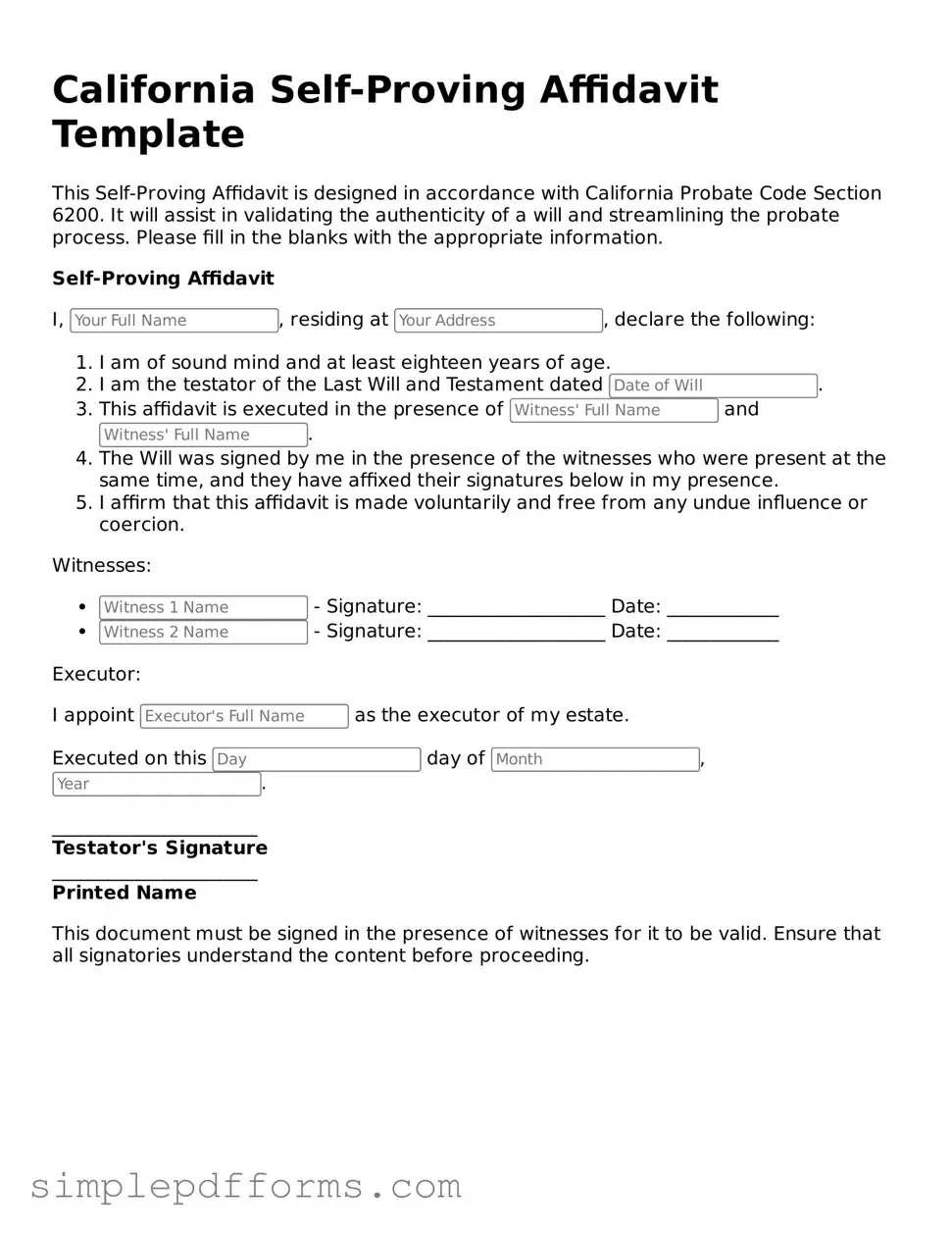Attorney-Verified Self-Proving Affidavit Document for California State
The California Self-Proving Affidavit is a legal document that allows a will to be validated without the need for witnesses to testify in court. This form simplifies the probate process, making it easier for heirs to inherit property. By using this affidavit, individuals can ensure that their final wishes are honored with less hassle and delay.
Open Self-Proving Affidavit Editor Now

Attorney-Verified Self-Proving Affidavit Document for California State
Open Self-Proving Affidavit Editor Now

Open Self-Proving Affidavit Editor Now
or
Get Self-Proving Affidavit PDF Form
Your form is waiting for completion
Complete Self-Proving Affidavit online in minutes with ease.